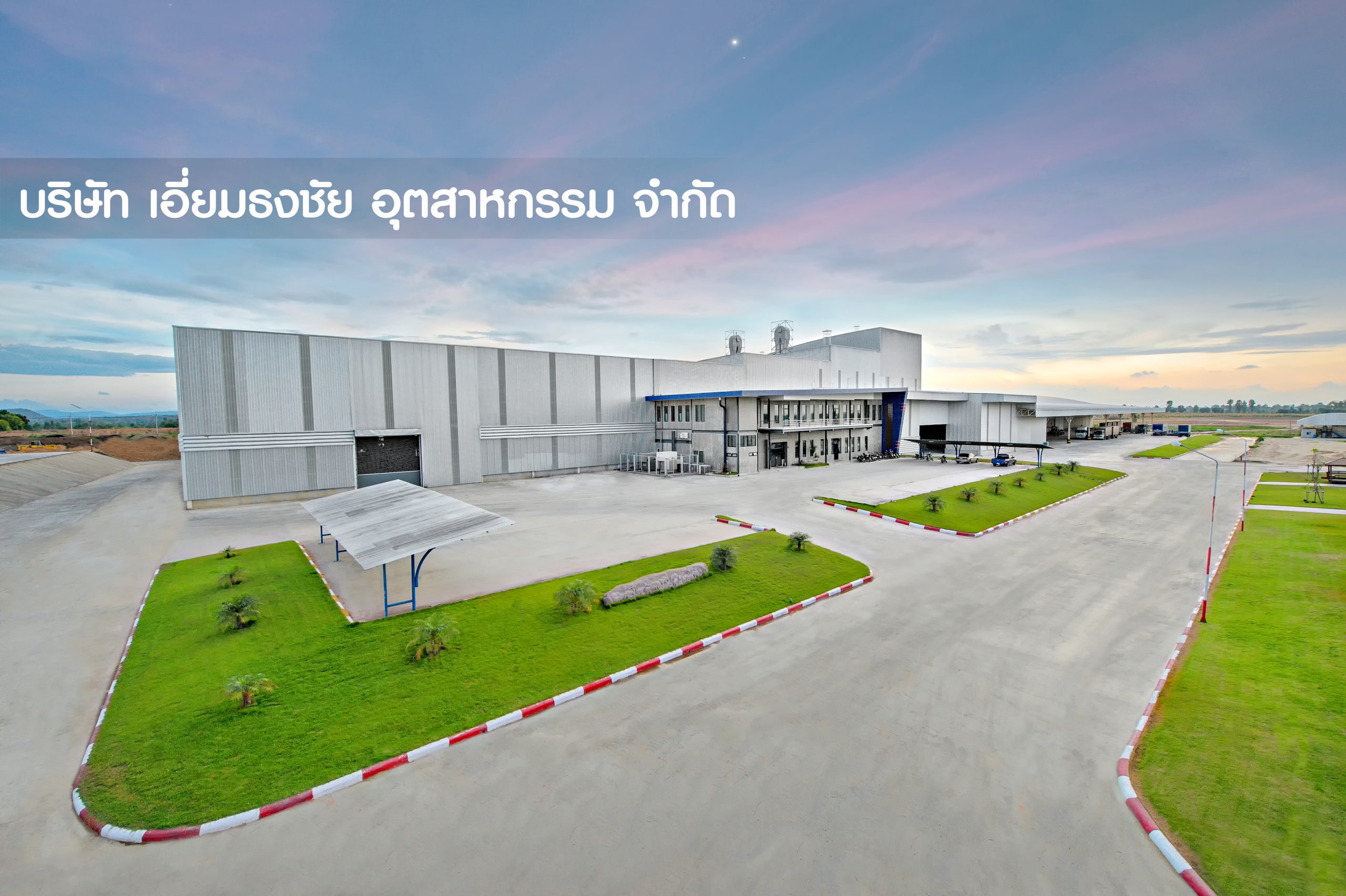
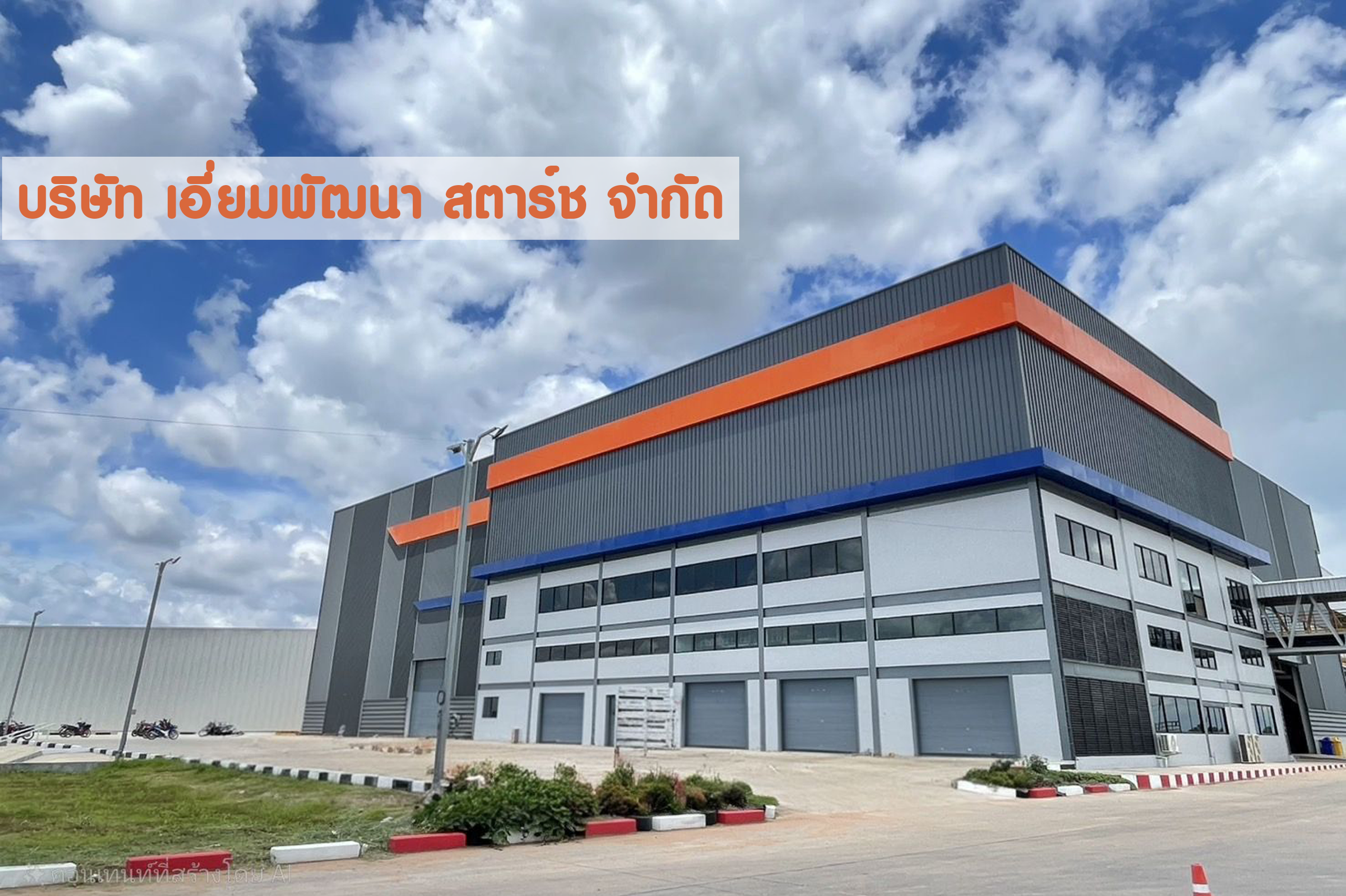


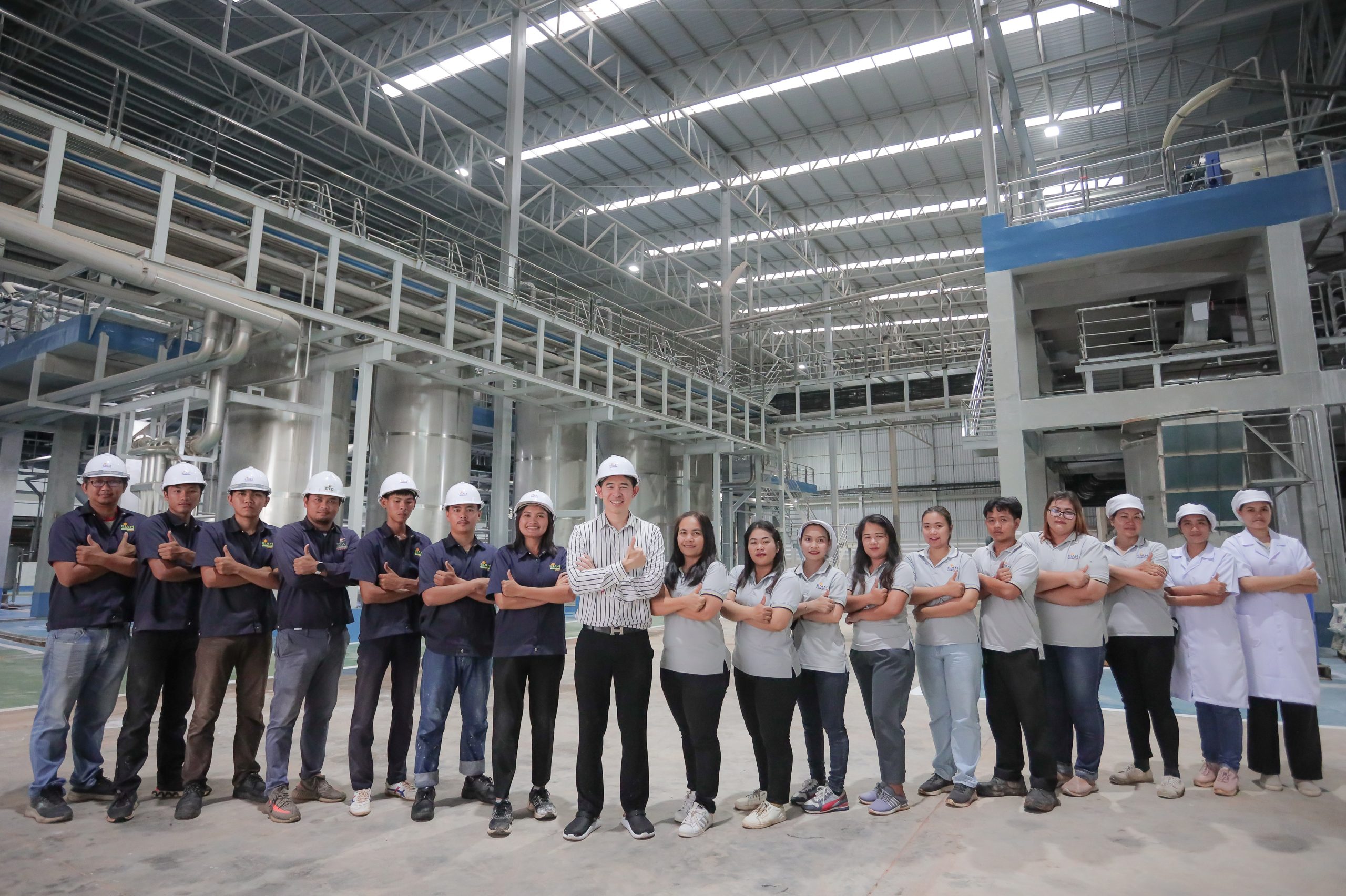



ETC Group of Companies was formed through the merger of 6 companies specializing in cassava starch production. Established in 1986 (B.E. 2529), the group boasts over 35 years of experience in the cassava starch industry. Throughout its history, the group has continuously improved its production efficiency and the quality of its cassava starch. Currently, we utilize advanced and modern machinery and production technology to manufacture high-quality cassava starch. Furthermore, our strategic factory locations, surrounded by raw material sources, have propelled ETC Group to become a leader in the cassava starch industry in Thailand. Our production volume reaches approximately 2,350 tons per day, or about 800,000 tons per year.
The core business of the ETC Group is the production of tapioca starch. The Group operates four manufacturing facilities located across three provinces. All four factories maintain consistent product quality, with fully automated production processes controlled by computer systems utilizing advanced Swedish technology.
Our operations are supported by a team of highly skilled and experienced professionals. All production plants and storage warehouses are fully enclosed systems, offering significant advantages in preventing contamination as well as the intrusion of animals or insects into the facilities. The core business of the ETC Group is the production of tapioca starch. The Group operates four manufacturing facilities located across three provinces. All four factories maintain consistent product quality, with fully automated production processes controlled by computer systems utilizing advanced Swedish technology. Our operations are supported by a team of highly skilled and experienced professionals. All production plants and storage warehouses are fully enclosed systems, offering significant advantages in preventing contamination as well as the intrusion of animals or insects into the facilities.
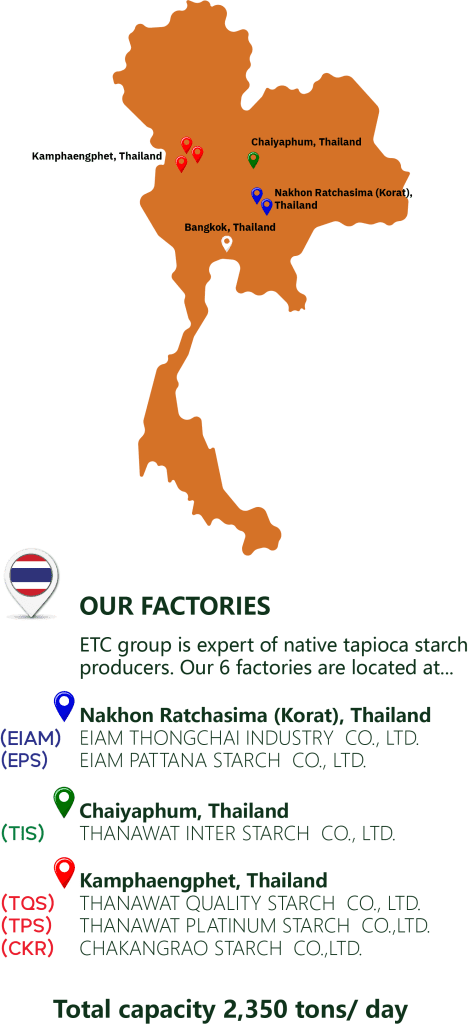
Cassava is a perennial shrub that can live for several years. It is propagated using stem cuttings, which are planted directly into the soil. At the cut surface inserted into the ground, fibrous roots begin to develop. About two months after planting, these roots gradually start to accumulate starch and enlarge, forming what is known as cassava tubers. The cassava tubers can typically be harvested after six months. However, the harvesting period can be extended up to 16 months. During this time, the buds on the stem continue to grow and develop into new shoots. (Source: Cassava Development Institute)


Currently, the northeastern region of Thailand has the largest cassava cultivation area in the country. Eiamthongchai Industry Co., Ltd. is located in Pak Thong Chai District, Nakhon Ratchasima Province. Eiampattana Starch Co., Ltd is located in Bua Yai District, Nakhon Ratchasima Province. The company purchases cassava roots from both farm sources and local collection yards. Raw materials are sourced from areas including Pak Thong Chai District, Wang Nam Khiao District, Khon Buri District, Chok Chai District, and Pak Chong District.
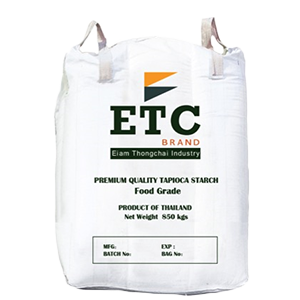
Manufacturer and distributor of quality tapioca starch, packaged in 850 kg, 2 loop bags.
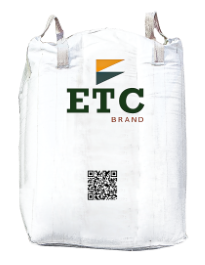
Manufacturer and distributor of quality tapioca starch, packaged in 850 kg, 4 loop bags.
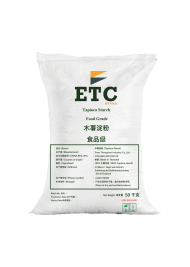
Manufacturer and distributor of quality tapioca starch, packaged in 50 kg.
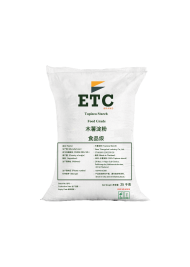
Manufacturer and distributor of quality tapioca starch, packaged in 25 kg.
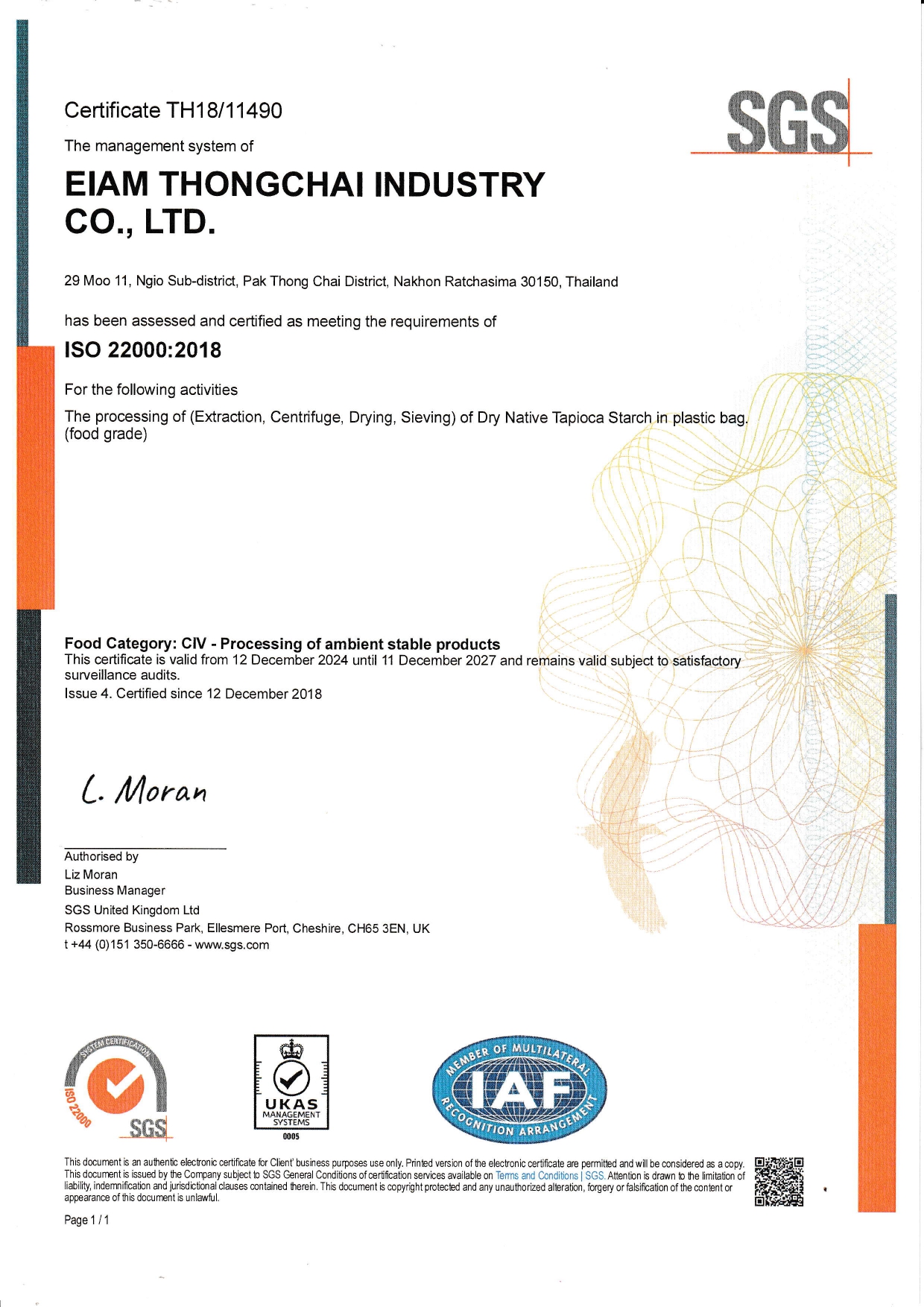
ISO22000 is a food safety management system that directly applies to operators in the food industry and is closely linked to the food supply chain. The standard encompasses requirements from GMP (Good Manufacturing Practices), HACCP (Hazard Analysis and Critical Control Points), as well as key internal management system requirements. It emphasizes the need for businesses to maintain clearly defined food safety standards.
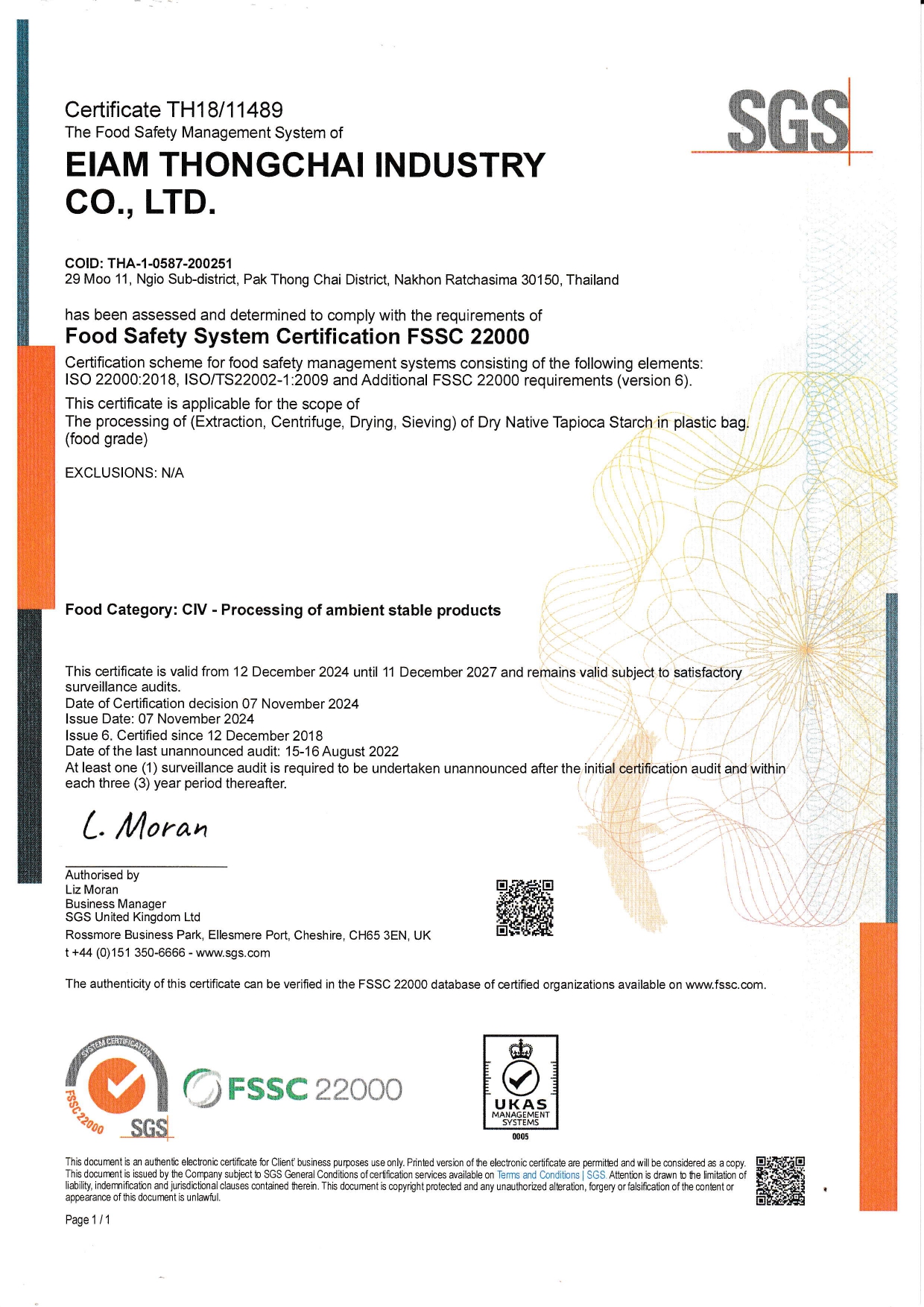
FSSC 22000 (Food Safety System Certification 22000) is a global certification scheme for food safety management systems, established by the Foundation for Food Safety Certification. It is widely recognized in the food manufacturing sector.
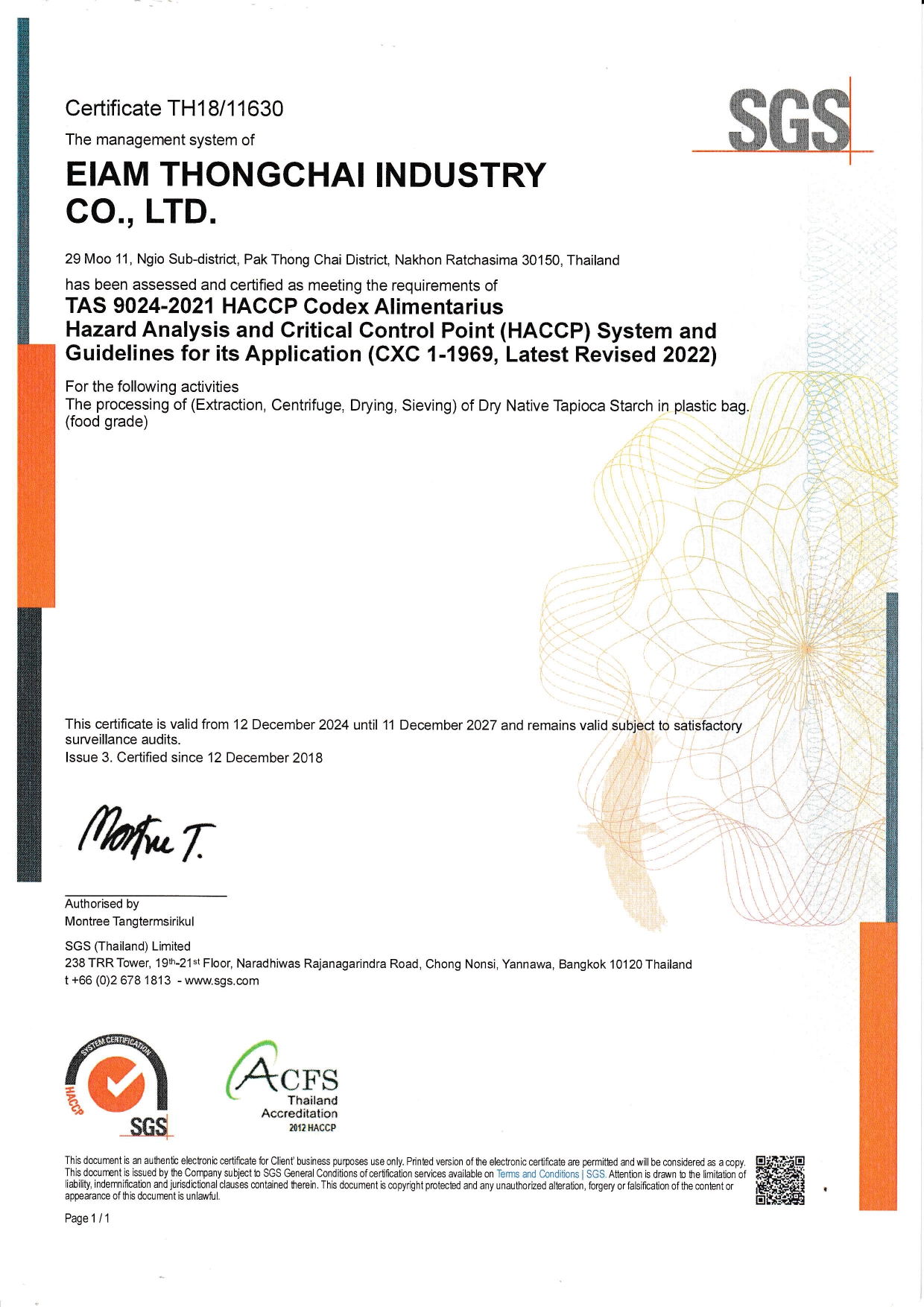
HACCP is a global standard used to identify and control potential hazards in food production processes. It ensures the safety and quality of food products, especially for international markets and export.
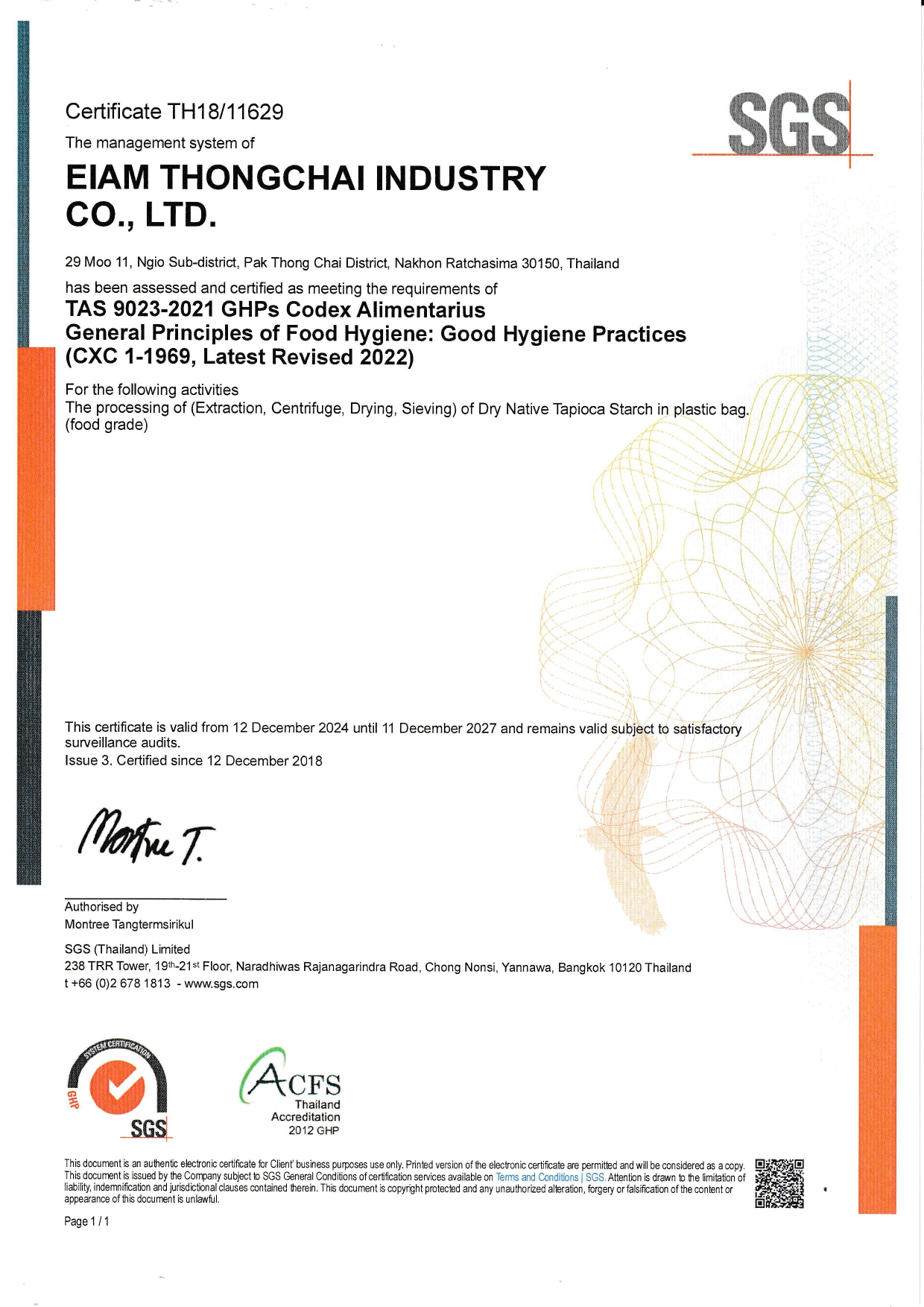
GMP provides fundamental guidelines and requirements for food production and control, ensuring that manufacturers follow procedures that promote the safe production of food. The focus is on prevention and the elimination of potential hazards that could compromise food safety for consumers.
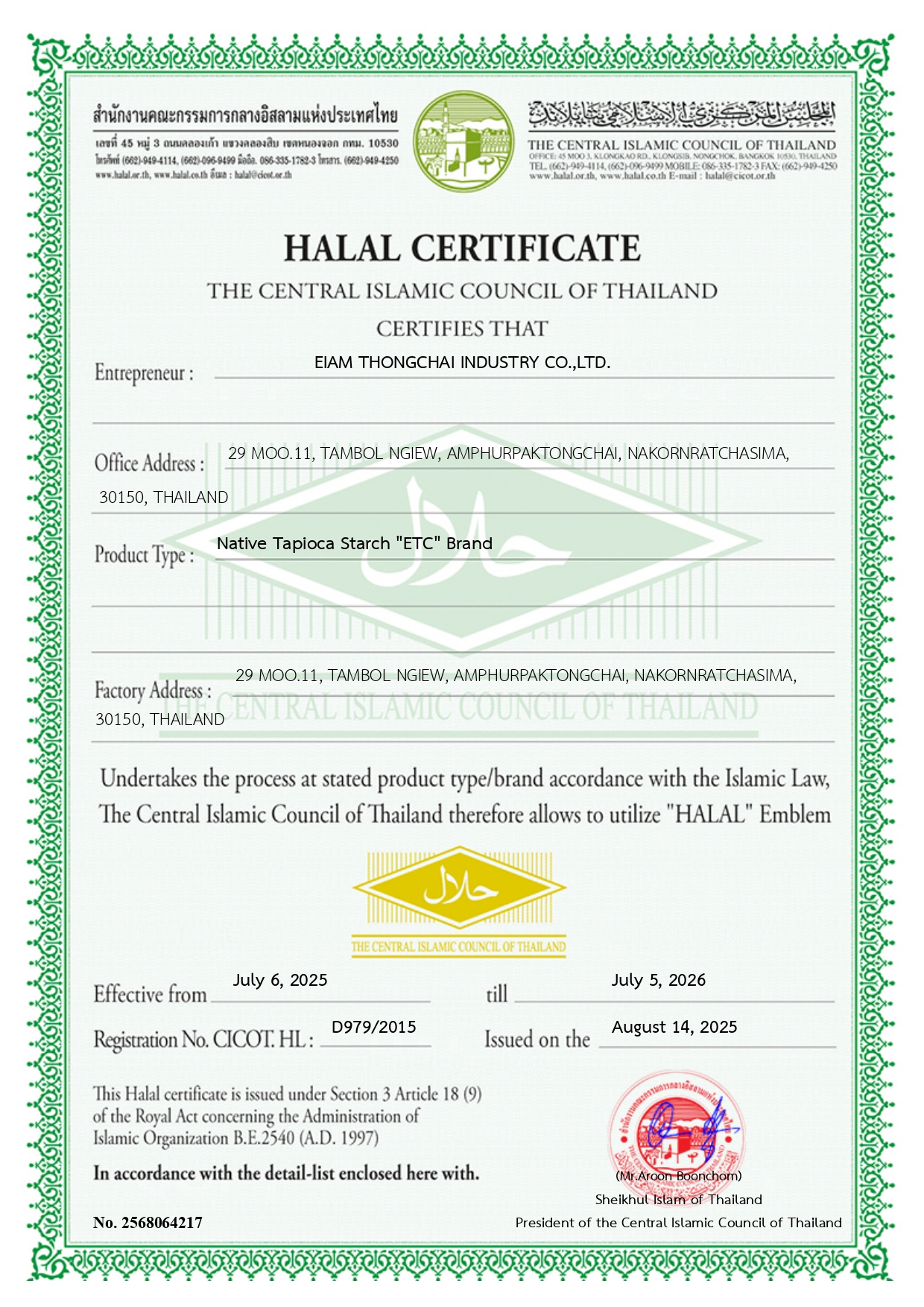
Halal certification ensures that food and products have been processed, prepared, and handled in accordance with Islamic law. It guarantees that Muslim consumers can consume and use these products with confidence.
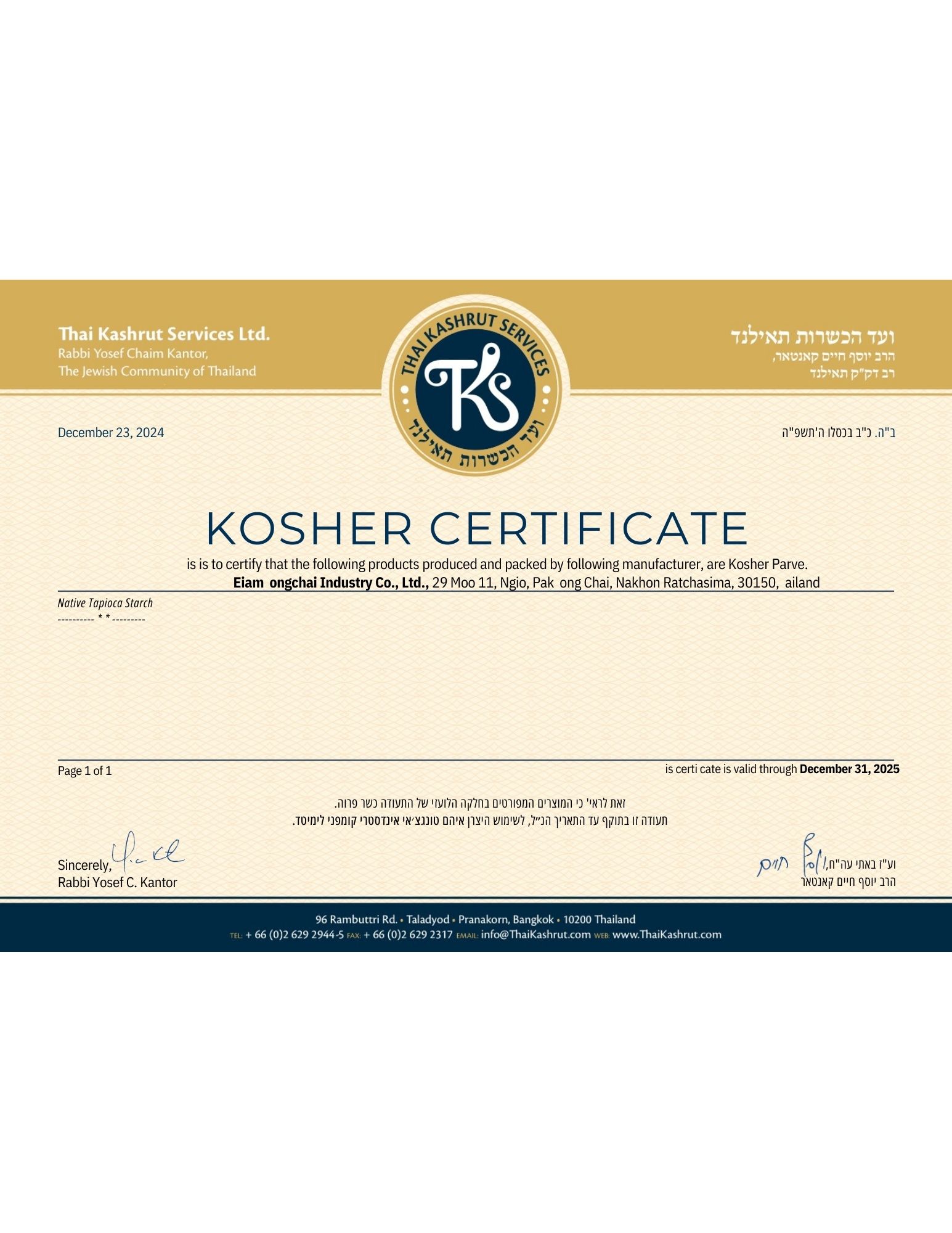
Derived from the Hebrew word meaning “clean,” “proper,” or “acceptable,” Kosher certification ensures that food complies with Jewish dietary laws (Kashruth). It confirms that products meet religious requirements and are permitted for consumption under Jewish tradition.
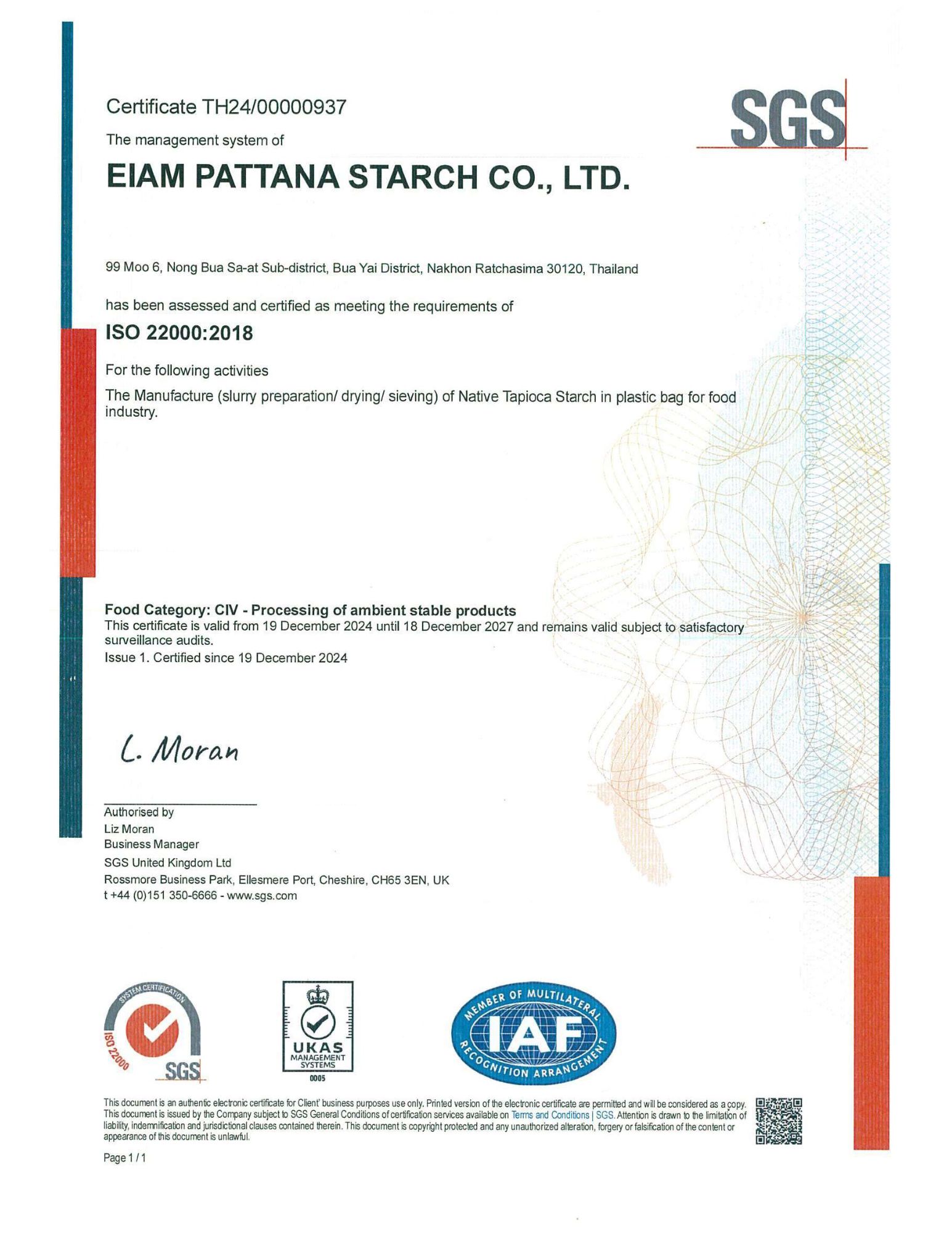
ISO22000 is a food safety management system that directly applies to operators in the food industry and is closely linked to the food supply chain. The standard encompasses requirements from GMP (Good Manufacturing Practices), HACCP (Hazard Analysis and Critical Control Points), as well as key internal management system requirements. It emphasizes the need for businesses to maintain clearly defined food safety standards.
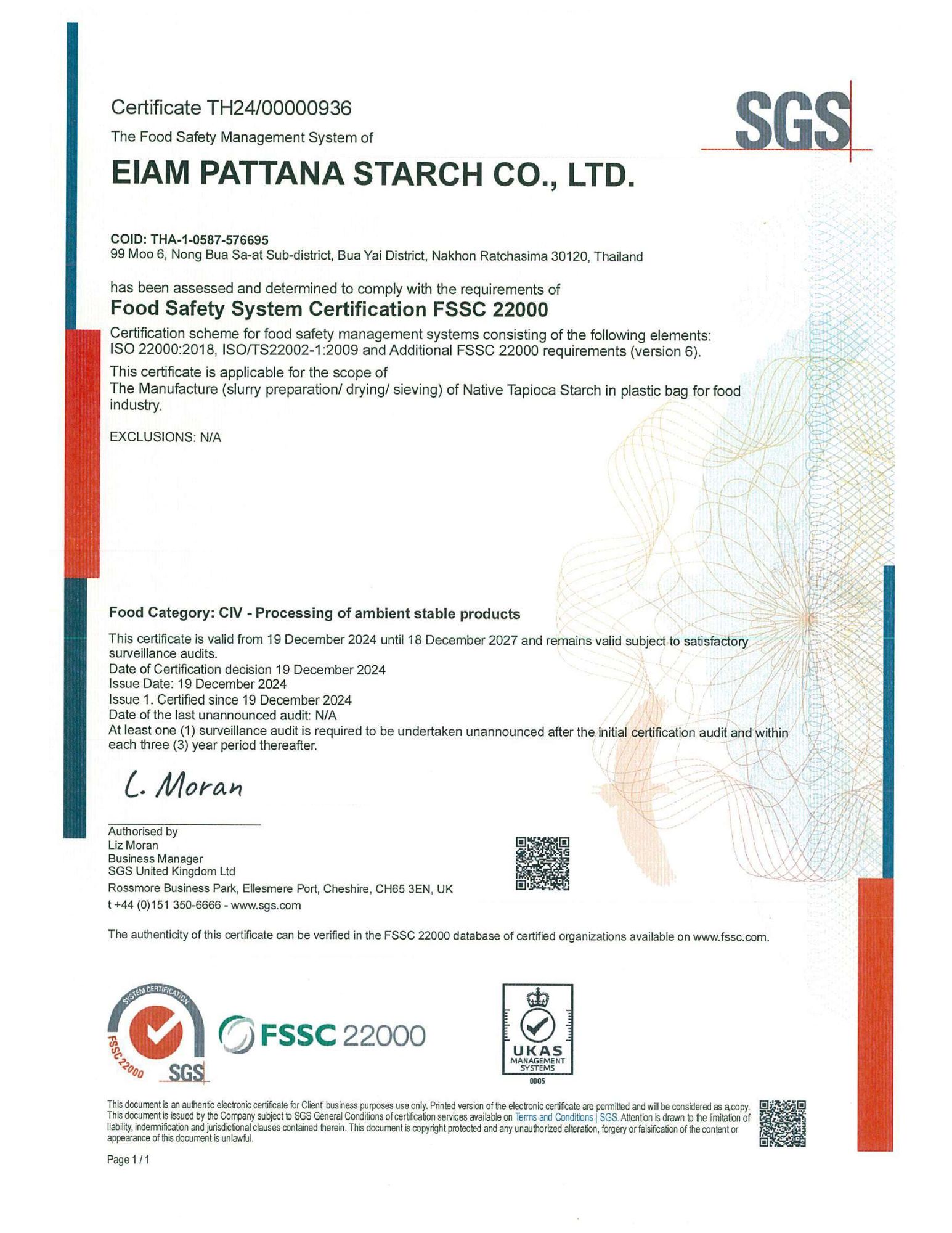
FSSC 22000 (Food Safety System Certification 22000) is a global certification scheme for food safety management systems, established by the Foundation for Food Safety Certification. It is widely recognized in the food manufacturing sector.
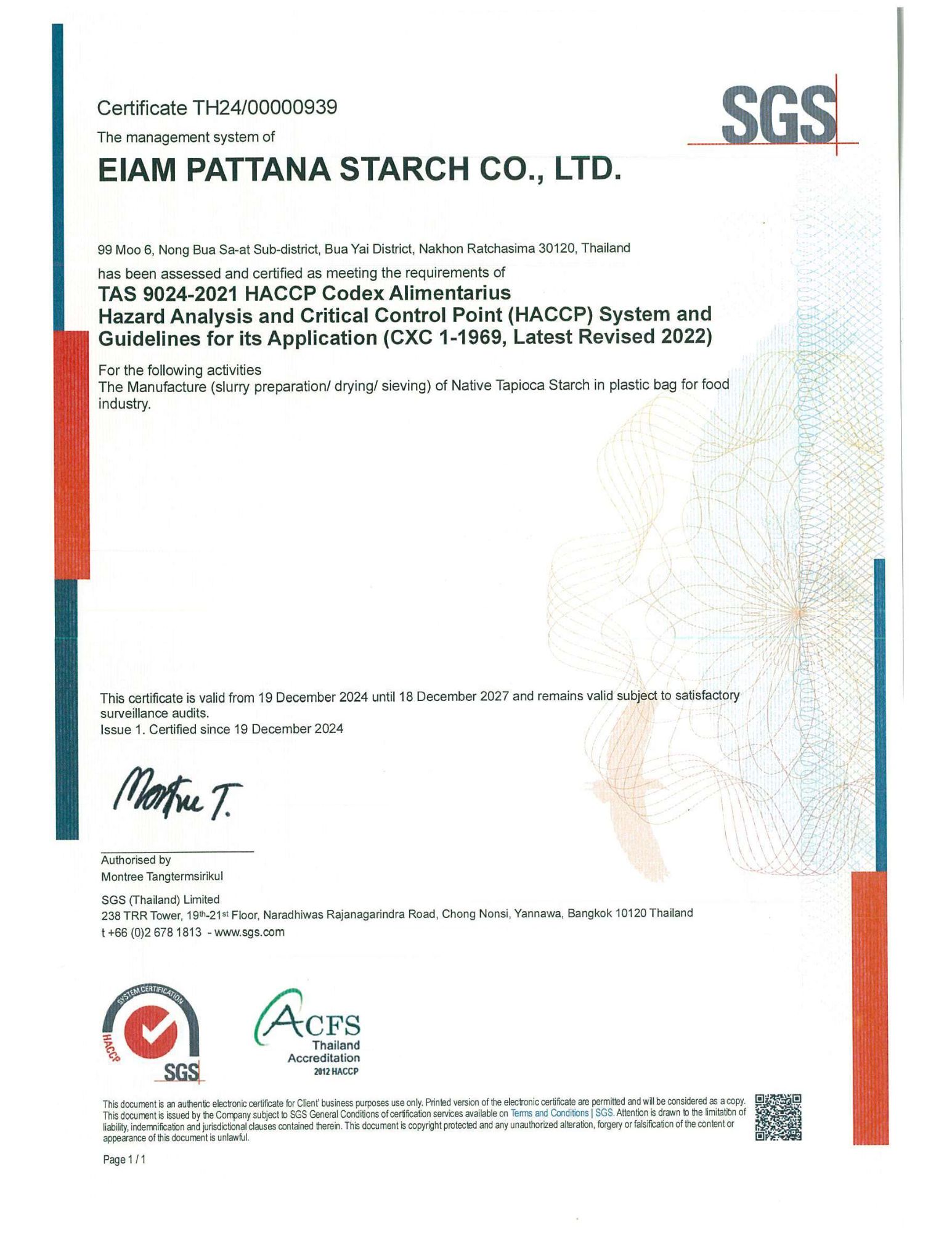
HACCP is a global standard used to identify and control potential hazards in food production processes. It ensures the safety and quality of food products, especially for international markets and export.
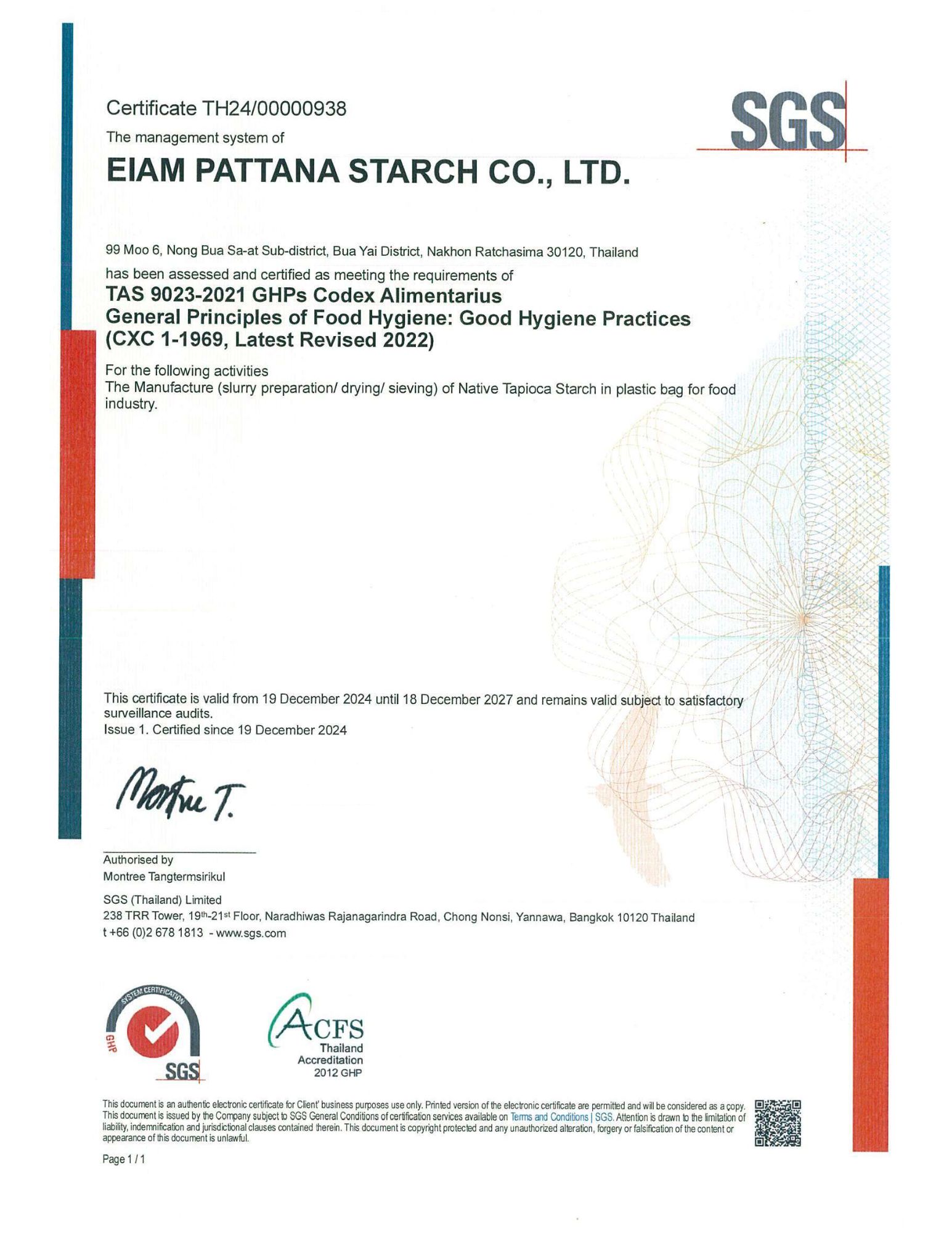
GMP provides fundamental guidelines and requirements for food production and control, ensuring that manufacturers follow procedures that promote the safe production of food. The focus is on prevention and the elimination of potential hazards that could compromise food safety for consumers.
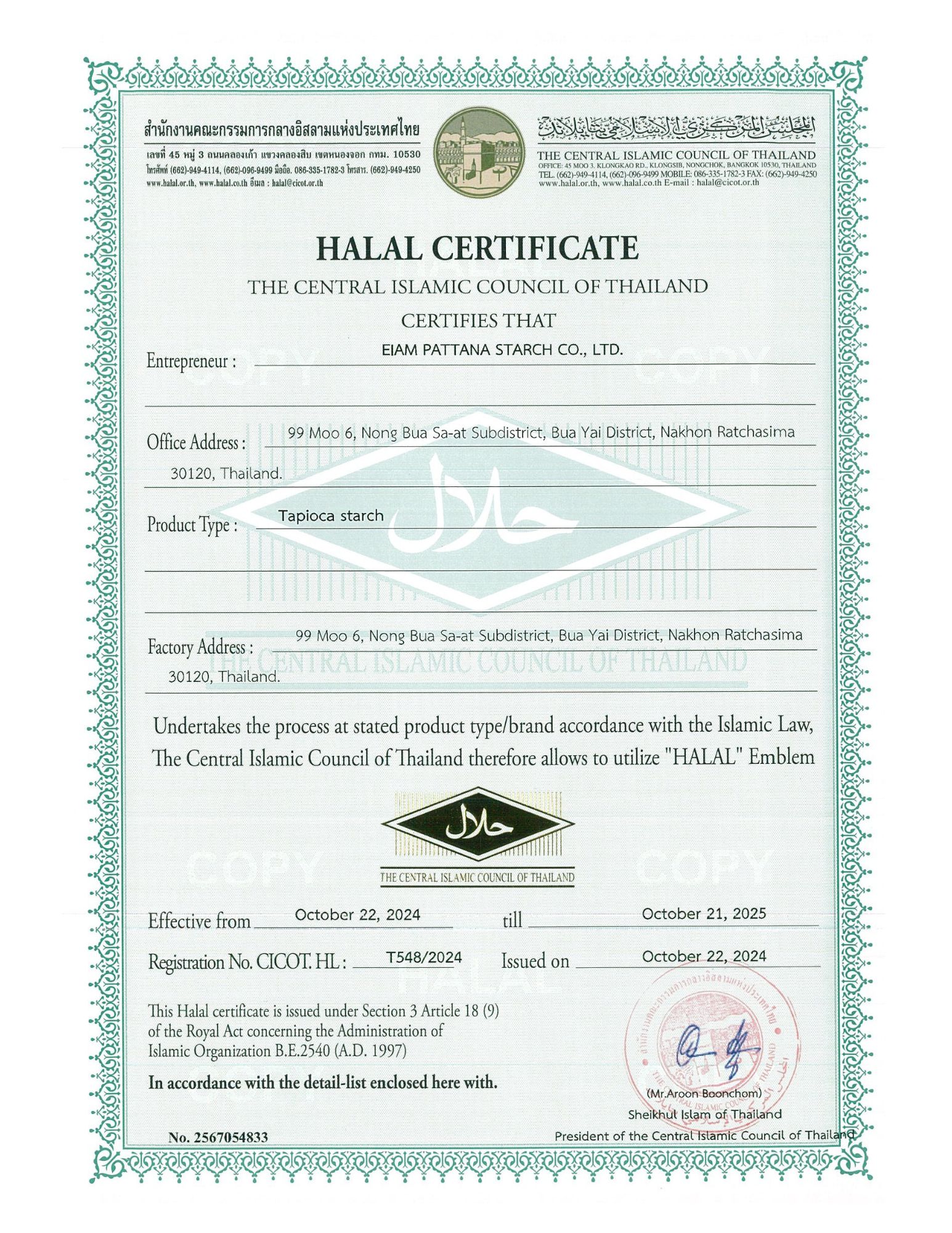
Halal certification ensures that food and products have been processed, prepared, and handled in accordance with Islamic law. It guarantees that Muslim consumers can consume and use these products with confidence.
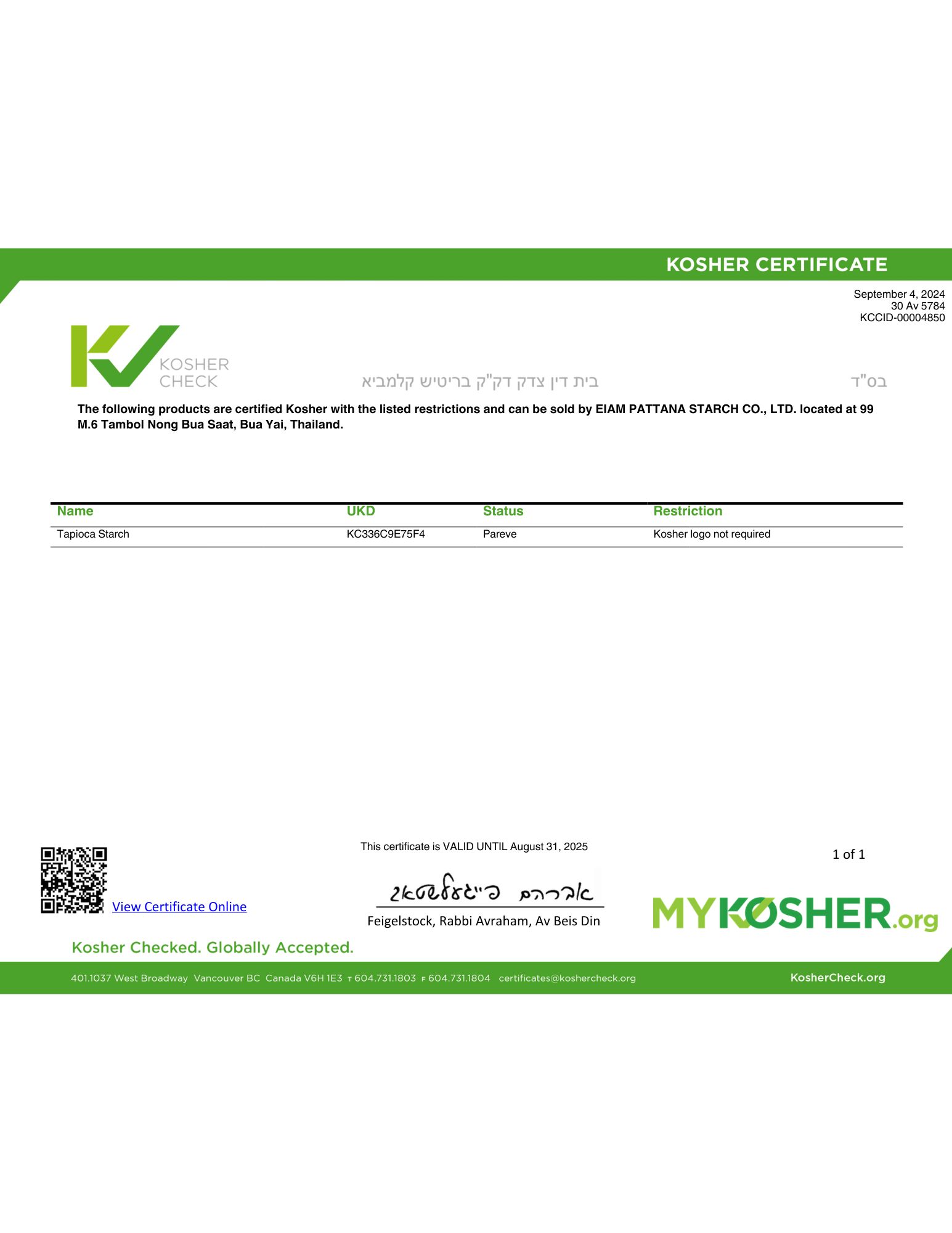
Derived from the Hebrew word meaning “clean,” “proper,” or “acceptable,” Kosher certification ensures that food complies with Jewish dietary laws (Kashruth). It confirms that products meet religious requirements and are permitted for consumption under Jewish tradition.